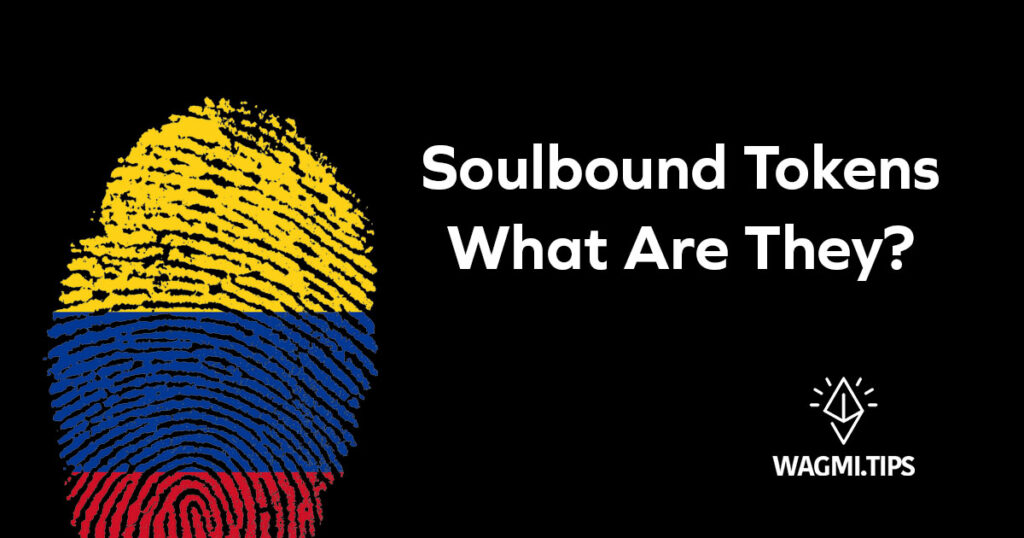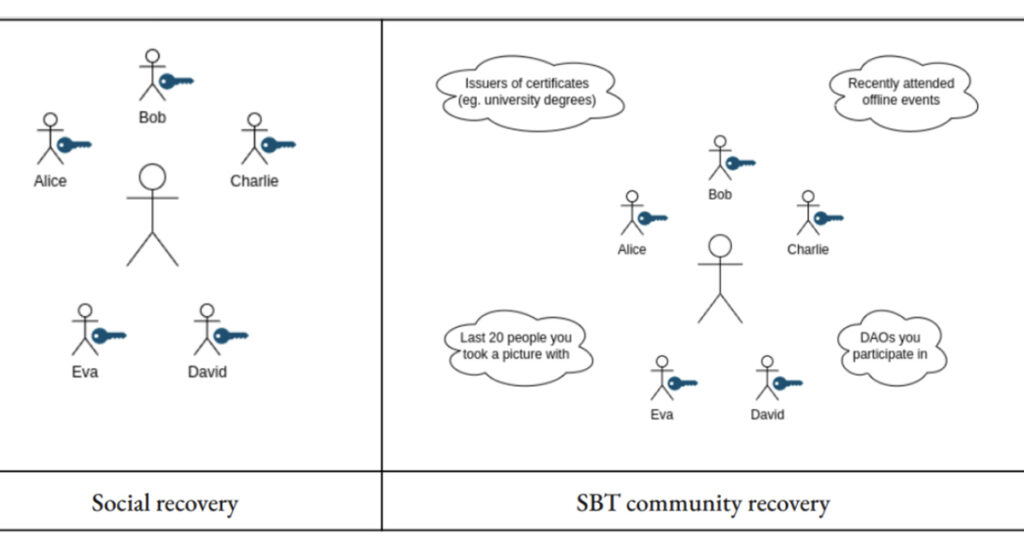The Complete Guide To Soulbound Tokens
In May 2022, Microsoft Research’s Eric Glen Weyl, Flashbot’s Puja Ohlhaver, and Ethereum’s Vitalik Buterin published a whitepaper titled Decentralized Society: Finding Web3’s Soul. The 37-page paper introduces Soulbound Tokens (SBTs), which can be a significant upgrade to today’s NFTs. Here’s all you need to know about SBTs.

Table of Contents
What Are Soulbound Tokens?
In the recent publication, the authors described Soulbound Tokens (SBT) as publicly visible, non-transferable, but possibly revocable by the issuer. As opposed to NFTs, SBTs cannot be bought, sold, or transferred to another digital wallet.
Theoretically, SBTs can be used to represent educational credentials, employment history, hashes of works of art, or proof that someone attended a conference. This can be similar to how we share experiences in our traditional CVs.
The current development only requires SBTs to be permanently linked to a digital wallet, and not an owner’s legal name. There is also no restriction against having multiple wallets. Therefore, owners can hold a range of SBTs and still maintain their anonymity if they intend to.
Soulbound Tokens Use Cases
Here are some of the possible uses for SBTs:
1) NFT Creators
Similar to a verified check mark, SBTs could be linked to NFT collections to help collectors know which collections genuinely belong to the creator. It can be a way to help reduce scams and bad actors who try and impersonate NFT projects.
2) Proof of attendance
While we already have POAP NFTs, the non-transferability of SBTs will ensure that only the real attendees hold the proof of attendance tokens. Currently, we can see POAP NFTs being sold on secondary markets like OpenSea and LooksRare, which defeats the purpose of issuing POAPs in the first place.
3) Social credit system
Both collateralized and uncollateralized lending in traditional finance and web3 are flawed in multiple ways. For instance, it is very difficult to fairly score creditworthiness for the average Joe, and even worse for people who have not accumulated insufficient data. SBTs cannot solve this issue entirely, but can create a form of social credit system.
In this system, holding SBTs that represent educational credentials, work history, and rental contracts can serve as a credit-relevant history. Users will then apply for loans by staking their reputation. Once secured, loans and credit lines will be represented by a revocable SBT that will be burned once the loans are paid off.
4) SBTs as a recovery method
In the context of wallet security, Social recovery is an emerging alternative that relies on a person’s trusted relationships to secure a wallet. A user typically selects a set of ‘guardians’ and gives them the power to change the keys of a wallet by majority. However, this requires users to maintain a close relationship with these ‘guardians’ over the span of years, possibly decades. Problems may arise when relationships turn sour, when people fall out of touch, or when people pass away.
SBTs can be a good alternative to social recovery given that SBTs are social memberships across various communities. This can include off-chain communities like churches, universities, and companies, or on-chain communities such as DAOs. This way, it will be easier to obtain consent from community members for the purpose of social recovery.

Notable Soulbound Tokens
Binance has released their very first SBT, the Binance Account Bound (BAB). BABs aim to tackle identity verification issues in Web3, serving as a digital verification tool for Binance users who have completed KYC verification. In the future, the organization plans to use BABs for NFT airdrops, DAO governance voting, and prevent bot activities.
Challenges of SBTs
The authors also highlighted several possible challenges for SBT implementation. As a user accumulates SBTs over time, the wallet may begin to expose more private information about a user. This may make such users vulnerable to social control. In addition, while SBTs are permanently linked to a wallet, it may be difficult to prevent wallet owners from transferring ownership of said wallet to another owner, simply by sharing the wallet’s login credentials.
There is also the issue of collusion, where users coordinate through private channels to misrepresent their social solidarities. For instance, unscrupulous conferences could offer SBTs representing conference attendance in exchange for bribes. Vote buying in DAOs is a clear reference for this issue.
Conclusion
There are already active initiatives in place to overcome the various challenges in SBT implementation. For example, SBT issuers can introduce punishments to malicious users, rewards for honest behavior, and encourage whistleblowing. On a technical level, issuers can also implement ZK technology to cryptographically prevent malicious activity. All in all, this is an ambitious endeavor but the potential that a Decentralized Society offers may just be worth the effort.
